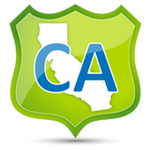Los Angeles - California Food Allergy Training
 Researchers estimate that up to 15 million Americans have food allergies, including 5.9 million children under age 18 - that’s 1 in 13 children. Moreover, about 30% of children with food allergies are allergic to more than one food. Source: Food Allergy Research & Education
Researchers estimate that up to 15 million Americans have food allergies, including 5.9 million children under age 18 - that’s 1 in 13 children. Moreover, about 30% of children with food allergies are allergic to more than one food. Source: Food Allergy Research & Education
The Food Allergen Labeling and Consumer Protection Act (FALCPA) identifies 8 foods or food groups as the major food allergens. They are milk, eggs, fish (e.g., bass, flounder, cod), crustacean shellfish (e.g., crab, lobster, shrimp), tree nuts (e.g., almonds, walnuts, pecans), peanuts, wheat, and soybeans. They account for 90% of all allergic reactions.
Course Description
The Food Allergy Training Course is designed to educate all restaurant and food service workers – from the server and hostess in the front of the house, to the manager and executive chef, to the line cook in the back of the house – about the severity of food allergies and the precautions that must be taken.
The training course will cover what is a food allergy, the different types of food allergens, how to identify symptoms of a food allergic reaction and what to do if a food allergic reaction occurs in a restaurant food service environment.
The course will also cover the best practices for restaurant employees to serve a food allergic customer including: the role of management, how to properly prepare an allergen safe meal for a food allergic customer, the front of the house and back of the house responsibilities.
Audience: Owners, managers, supervisors, food servers, chefs, cooks, mobile food vendors, bartenders, host/hostesses that handle food, bussers, caterers, and wait staff.
Credit Hours: 1 hr
Learning Objectives:
Upon completion of this course, student will be able to:
- Define a food allergy, including the top 8 food allergens and sources of each.
- Recognize the difference between a food allergy and food intolerance.
- Identify symptoms of a food allergic reaction.
- Describe the protocol for notifying emergency response if a food allergic reaction occurs.
- Discuss best practices for serving a food allergic customer, including the role of management, front of the house and back of the house employees.
- Describe how to properly prepare an allergen safe meal for a food allergic customer.
- Analyze a case study on how to properly serve a food allergic guest.
Course Topics:
Lesson 1: Overview of Food Allergens
Lesson 2: Allergy vs. Food Intolerance
Lesson 3: The Top 8 Allergens
Lesson 4: Importance of Allergen Control Plans in Commercial Food Service
Lesson 5: Recognizing Symptoms of an Allergic Reaction
Lesson 6: Facility Management: Handling Food Safely for Allergen Guests
Lesson 7: Communicating in a Restaurant: Management, FOH, BOH, and Service Staff
Lesson 8: Allergic Scenario: Customer Interaction
End of Course Test – Print Your Training Certificate
As soon as you complete the Food Allergy Training Course – you will then be required to take the End of Course Test.
With a minimum passing score of 70% on the test, you will be able to download and print your certificate of completion.
Individuals who do not pass the test on the first attempt will be allowed one additional attempt to review the course content and pass the test.
State Reqs and Info
State Requirements
California law requires all food handlers to have certification in handling major food allergens and preventing cross-contamination.
AB 1532 (The Natalie Giorgi Sunshine Act) – amends Section 113947 of the California Health and Safety Code – to require all food handlers to have a simple certification in safe food handling practices for major food allergens.
AB 1532 also added “Organized Camps” to the definition of “Food Facility” for the basis of requiring training for individuals who handle food at camps. This is due to Natalie Giorgi passing away at age 13 due to a severe allergic reaction to undeclared peanut in a treat while at a summer camp in Sacramento.
Food service operations can greatly reduce the risk for allergic reactions among patrons by providing food allergy training for all food-handling personnel, list ingredients for patrons on all menu items, and by dedicating equipment and areas specifically for preparing allergen-free food.
California Food Allergy Law (Cal Code)
Section 113947 of the California Health and Safety Code:
(a) The person in charge and all food employees shall have adequate knowledge of, and shall be properly trained in, food safety as it relates to their assigned duties.
(b) The person in charge shall comply with both of the following:
(1) Have adequate knowledge of major food allergens, foods identified as major food allergens, and the symptoms that a major food allergen could cause in a sensitive individual who has an allergic reaction.
(2) Educate the employees at the food facility regarding the information described in paragraph (1), which the person in charge may elect to accomplish by, among other methods, using a poster or job aid to which the employee can refer.
(c) For purposes of this section, “person in charge” means a designated person who has knowledge of safe food handling practices and the major food allergens as they relate to the specific food preparation activities that occur at the food facility.
Frequently Asked Questions
Our food allergy training is accepted nationwide - except for: Illinois, Massachsetts, or Rhode Island - which has separate accreditation - to which it is not currently accredited.
- Player is “stuck”?
- Error message on page?
- Page not displaying correctly?
All three of these issues can usually be fixed by clearing your cache or cookies. Here is a site we recommend http://www.wikihow.com/Clear-Your-Browser's-Cache you can also do an internet search for “clearing cache” as there are many online resources to assist you in accomplishing this.
When you have completed your course and closed the player window, please go back to the My Courses page and refresh the screen. The Print Certificate link will show in blue text underneath the course name. If you don't see it, you must refresh your browser using its "Refresh" located near the top of your screen.
If you need proof of your certification immediately, please login to your account using the username and password that you originally used to take the course. If you forgot your username and password, please call 1-877-881-2235 to have one of our service representatives look it up for you. Then choose “resume course in progress” and it will forward you to the end of the course. You will then have an option to print your certificate.
Also, please call Customer Service at 1-877-881-2235 to request another copy of your certificate to be mailed to you. Official certificates will take approximately 7-10 business days to be mailed.
The cost of each course is located in the course catalog. You may pay using all major credit cards (Visa, MasterCard, Discover, American Express) and Telecheck.
We use SSL encryption when collecting or transferring sensitive data such as credit card and personal information. Credit card numbers are only used for processing payment and are not used for other purposes. Our efforts to protect credit card fraud help protect your financial data security. As part of real time payment processing, 360training.com subscribes to a fraud management service. This service gives both you and 360training.com an extra level of protection to guard against credit card fraud.
California Food Allergy and Food Safety Resources
California Food Allergy Law (Cal Code)
Section 113947 of the California Health and Safety Code
California Department of Food and Agriculture
1220 N Street
Sacramento, CA 95814
http://www.cdfa.ca.gov/
California Dept. of Health Services
Food and Drug Branch
1500 Capitol Avenue MA 7602
PO Box 997435
Sacramento, CA 95899-7435
Phone: (910) 650-6617
https://www.cdph.ca.gov/programs/Pages/FDB%20Food%20Safety%20Program.aspx
Major cities served: Los Angeles, San Francisco, San Diego, San Jose, Sacramento, Fresno, Long Beach, Bakersfield, Santa Ana, Oakland, Anaheim, Santa Ana, Riverside, Stockton, Chula Vista, Irvine, Fremont, San Bernardino, Modesto, Oxnard, Huntington Beach, Garden Grove, Oceanside, Santa Rosa, Berkeley, and many more!
California Food Safety Regulations:
- California Food Handler Card Law Guidelines (Word Doc)
- SB 602 – California Food Handler Card Requirements (PDF)
- California Retail Food Code (CRFC, 2016) (PDF)
- California Food Safety Program Rules and Guidelines
- FAQs: Commonly Asked Questions about AB 1978, California Food Safety and Sanitation Training, and Certified Examination
Food Allergy – Federal & General Resources:
- AAAAI/ACAAI Practice Parameters
- Centers for Disease Control and Prevention
- Department of Agriculture
- Food Allergy Educational Materials – WIC Works Resource System
- Food Allergies and Intolerances – Nutrition.gov
- Department of Health and Human Services
- Food Allergies – Healthfinder
- European Academy of Allergy and Clinical Immunology: International Consensus (ICON) Papers
- FDA – Food Allergens
- FDA – Food Allergen Labeling & Consumer Protection Act – FAQs
- National Institutes of Health (NIH)
- Food Allergy – National Institute of Allergy and Infectious Diseases (NIAID)
- Addendum Guidelines for the Prevention of Peanut Allergy (2017)
- National Institute for Allergy & Infectious Diseases: Guidelines for the Diagnosis and Management of Food Allergy in the United States: Summary for Patients, Families and Caregivers (May 2011)
- National Institute of Allergy and Infectious Diseases, National Institutes of Health: Food Allergy
- National Library of Medicine
- Food Allergy – Medical Encyclopedia
- Food Allergy – MEDLINEplus

